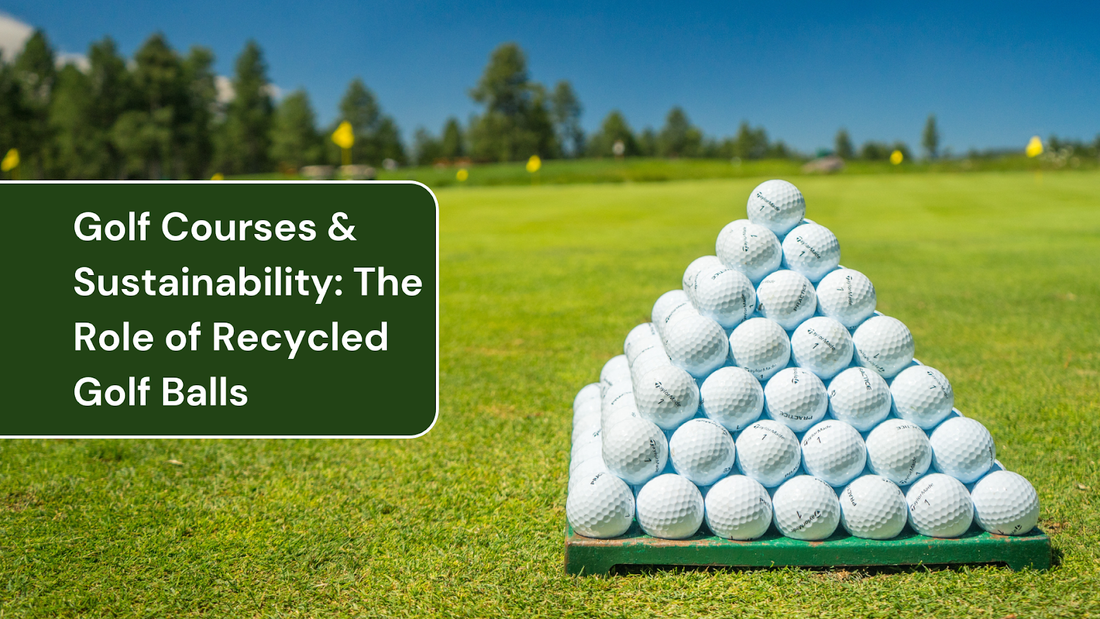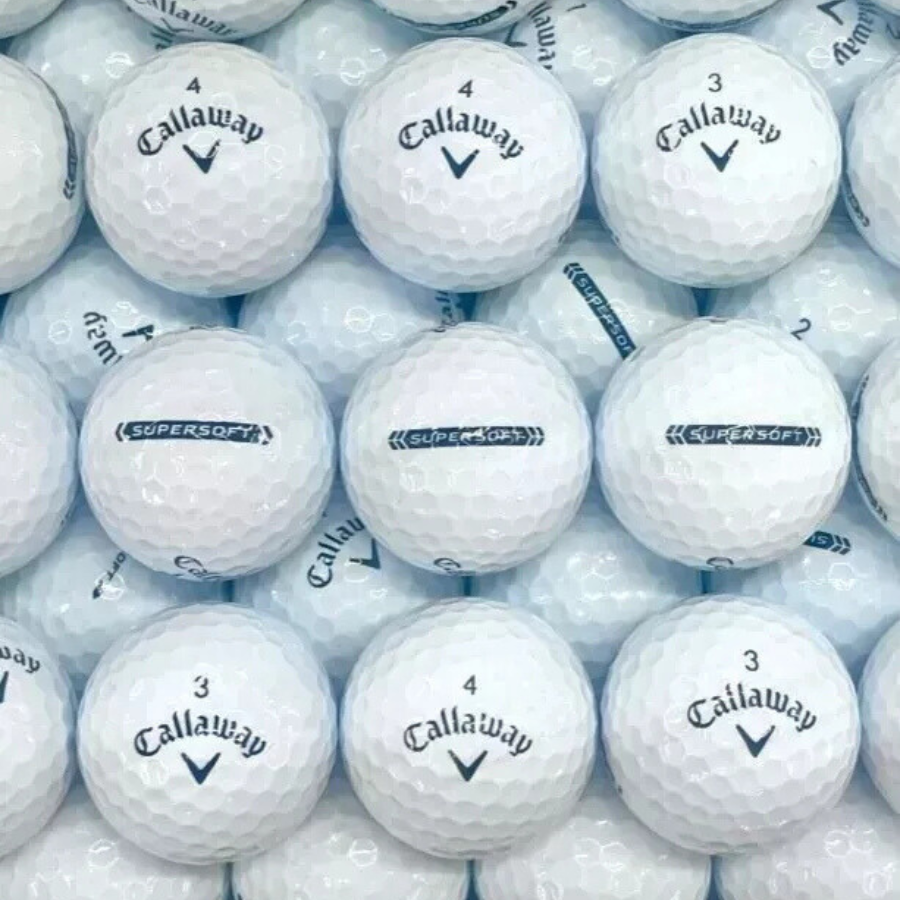
Golf Courses & Sustainability: The Role of Recycled Golf Balls
Golf, a sport deeply intertwined with nature, is increasingly recognizing its responsibility to the environment. From eco-friendly course design to water conservation, the golf industry is adopting sustainable practices, and recycled golf balls are playing a significant role in this shift
The Environmental Challenge in Golf
Golf courses are often seen as environmental havens, but maintaining these sprawling landscapes comes at a cost. Traditional practices, such as excessive water consumption, pesticide use, and the disposal of lost or damaged equipment, have raised concerns about the sport’s ecological footprint. One of the most overlooked issues is the sheer number of golf balls lost or discarded each year. Millions of balls end up in water hazards, roughs, or landfills, contributing to plastic waste and environmental degradation.
This is where recycled golf balls come into play. By giving used golf balls a second life, the industry is reducing waste and promoting a more sustainable approach to the game.
Eco-Friendly Practices on the Green
Golf courses are vast green spaces, and their maintenance can have a significant environmental impact. Here are some ways golf courses and tournaments are embracing sustainability:
• Eco-Friendly Course Design: New courses are being designed to blend with the existing landscape, preserving natural habitats and minimizing disruption. This includes using native plants that require less water and maintenance, as well as creating wildlife corridors to support local biodiversity.
• Water Conservation: Golf courses are implementing advanced irrigation systems that monitor soil moisture and weather conditions to minimize water waste. Many courses also use recycled or reclaimed water for irrigation.
• Reduced Chemical Use: Sustainable courses focus on lowering chemical use and controlling erosion. The Spray Star lineup offers precision in chemical application, ensuring that only the necessary amount of product is used, which minimizes runoff and the potential for environmental harm.
• Renewable Energy: Many golf courses are turning to renewable energy sources like solar panels and wind turbines to power their operations, reducing their carbon footprint.
• Waste Reduction: Efforts are being made to reduce food waste in restaurants and clubhouses.
Why Recycled Golf Balls Are a Game-Changer
Recycled golf balls are more than just a sustainable alternative, they’re a practical solution for golfers of all skill levels. Here’s why they’re gaining popularity:
• Affordability: Recycled golf balls are significantly cheaper than new ones, making them ideal for beginners or casual players. A pack of best golf balls for beginners that are recycled can cost a fraction of the price of new balls.
• Performance: Thanks to advanced cleaning and refurbishing techniques, recycled balls like Callaway golf balls and Titleist golf balls perform nearly as well as new ones. This makes them a viable option for players who want quality without the high price tag.
• Environmental Impact: By choosing recycled golf balls, players and courses are reducing waste and conserving resources. It's a simple choice that can have a significant impact.
How Golf Tournaments Are Going Green
Major tournaments like The Open and the PGA Tour are taking steps toward sustainability. Some initiatives include:
• Using eco-friendly golf gear such as biodegradable golf tees.
• Offering golf balls for sale at events that include refurbished and recycled options.
• Encouraging players and spectators to use reusable water bottles and limit single-use plastics.
• Partnering with sustainability-focused brands to provide environmentally friendly golf products.
Beyond the Balls: Other Sustainable Choices
While recycled golf balls are a key component, golfers can embrace sustainability in other ways:
• Eco-Friendly Golf Tees: Choose golf tees made from biodegradable materials like bamboo or cornstarch.
• Golf Gloves: Opt for golf gloves made from recycled materials or those designed for durability to reduce the need for frequent replacements.
• Responsible Course Behavior: Avoid littering and respect the natural environment while on the course.
Final Thoughts: Play Your Part in Sustainable Golf
Golf’s future depends on sustainability, and both courses and players have a role to play. Whether you’re a casual golfer or a seasoned pro, making simple choices, like purchasing used golf balls, opting for recycled golf balls, and using biodegradable golf tees, can make a world of difference in reducing waste and protecting the environment.
Looking for high-quality Callaway golf balls, Titleist golf balls, or the best golf balls for beginners at a fraction of the price? Check out golfBalls.net for a wide selection of golf balls for sale, including premium recycled options that deliver top-tier performance while supporting sustainability. Join the movement toward a greener game today!

